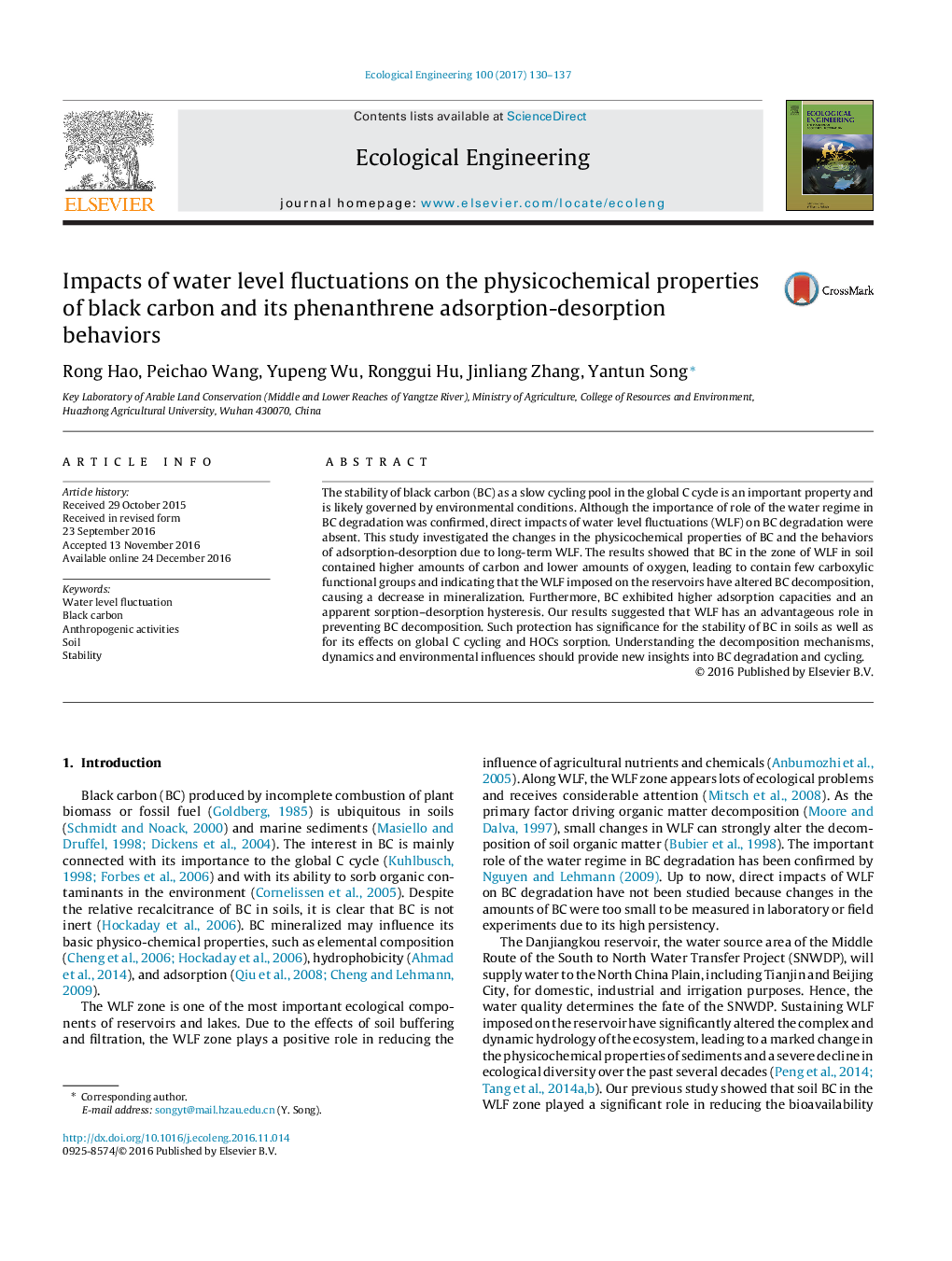| Article ID | Journal | Published Year | Pages | File Type |
|---|---|---|---|---|
| 5743713 | Ecological Engineering | 2017 | 8 Pages |
â¢BC contained higher amounts of carbon and lower amounts of oxygen.â¢BC exhibited higher adsorption capacities and an apparent sorption-desorption hysteresis.â¢WLF cause a decrease of BC mineralization.â¢WLF play an advantageous role in preventing BC decomposition.
The stability of black carbon (BC) as a slow cycling pool in the global C cycle is an important property and is likely governed by environmental conditions. Although the importance of role of the water regime in BC degradation was confirmed, direct impacts of water level fluctuations (WLF) on BC degradation were absent. This study investigated the changes in the physicochemical properties of BC and the behaviors of adsorption-desorption due to long-term WLF. The results showed that BC in the zone of WLF in soil contained higher amounts of carbon and lower amounts of oxygen, leading to contain few carboxylic functional groups and indicating that the WLF imposed on the reservoirs have altered BC decomposition, causing a decrease in mineralization. Furthermore, BC exhibited higher adsorption capacities and an apparent sorption-desorption hysteresis. Our results suggested that WLF has an advantageous role in preventing BC decomposition. Such protection has significance for the stability of BC in soils as well as for its effects on global C cycling and HOCs sorption. Understanding the decomposition mechanisms, dynamics and environmental influences should provide new insights into BC degradation and cycling.
